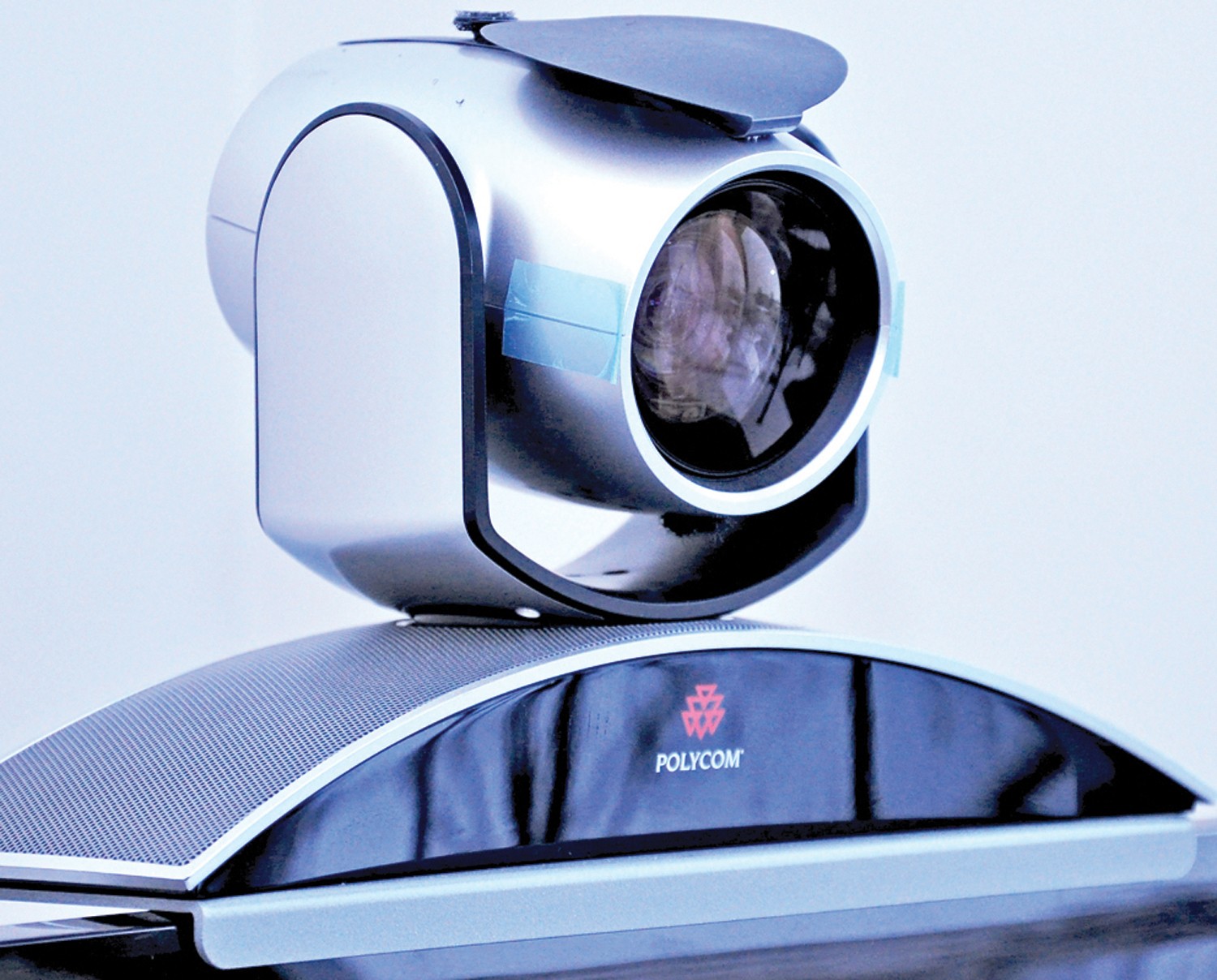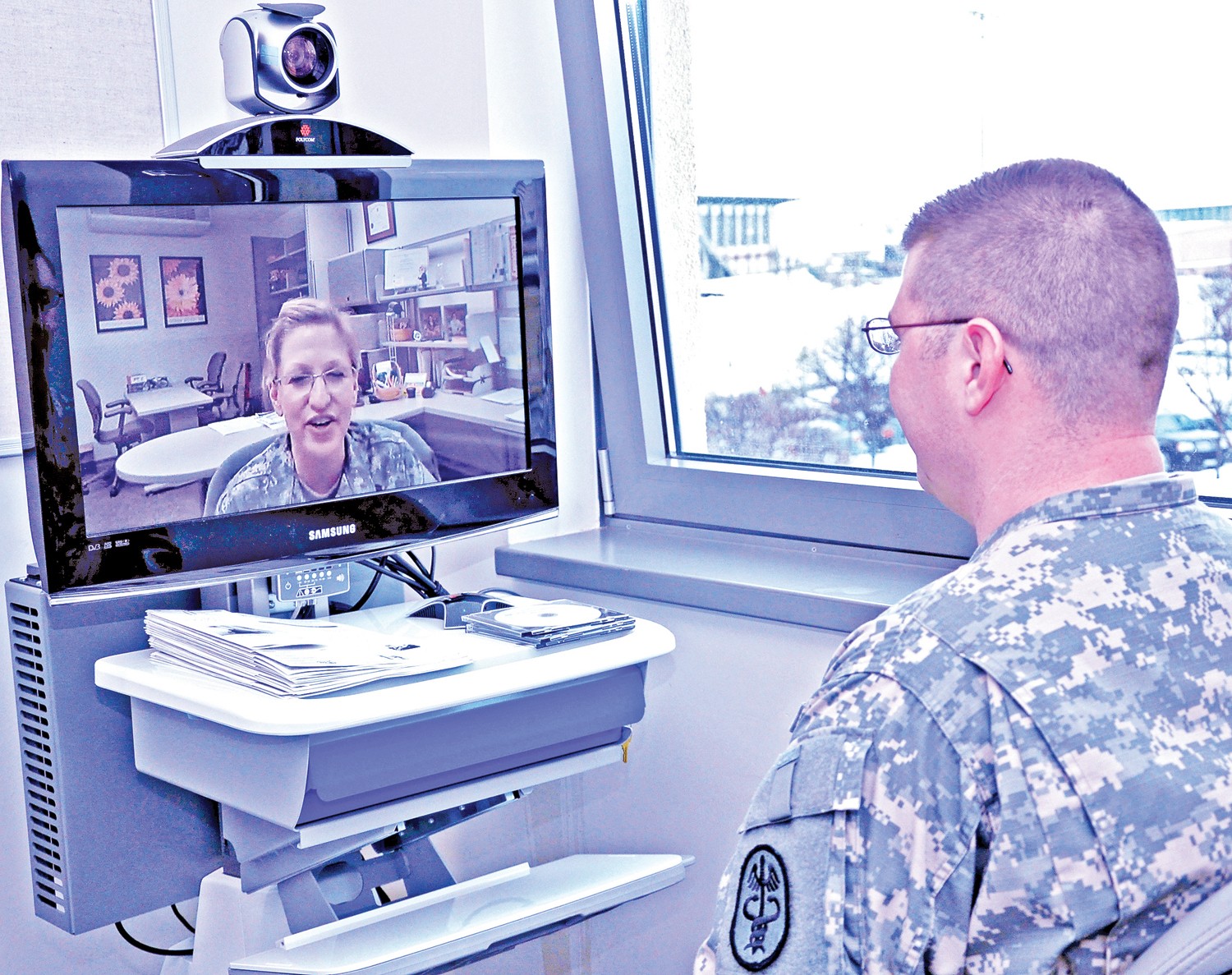WIESBADEN, Germany - Soldiers are comparing the Army's new Tele-Health behavioral screenings to Skyping with their families. And that relaxing comment is sitting well with the Army's behavioral health professionals.
In December more than 600 Soldiers returning with the 1st Armored Division from a one-year deployment to Iraq had the option of participating in Tele-Health behavioral health screenings.
The Wiesbaden Army Health Clinic was the first in Europe to use Tele-Health for reintegrating Soldiers.
"I feel like this is a safety net for those who may be suffering needlessly," said Lt. Col. Jennifer Humphries, director of Soldier and Family Support Services with Europe Regional Medical Command.
Sitting in front of a large computer screen, a behavioral health provider interfaces with a Soldier and asks questions about downrange events.
Were you in any vehicle accidents' Did you ever feel that your life was in danger' Did you witness any explosions'
"I'm trying to let them know that I view them as a person and not just a computer screen and vice versa," said Humphries, as she sat in her office in Heidelberg, her face a clear image displayed on a video teleconference screen in Wiesbaden.
The U.S. Department of Health and Human Services Administration defines telehealth as using electronic information and telecommunication technologies to support long-distance clinical health care.
The behavioral health screenings are part of the reintegration process and are required for Soldiers returning from deployments to help identify symptoms of Post Traumatic Stress and Traumatic Brain Injury.
"Telehealth expands resources for reintegration," said Lt. Col. Tony Tidwell, commander of the Wiesbaden Army Health Clinic, alluding to the fact that behavioral health professionals in three locations were able to facilitate the 1st AD's return without ever having to leave their offices.
"We just want to make sure we're allowing Soldiers access to care if they need it," said Humphries. "It's simple and easy to use."
An estimated 20 percent of 1st AD Soldiers volunteered for the Tele-Health screenings - 10-minute sessions interfacing with behavioral health providers located in Landstuhl and Heidelberg via VTC.
"The Soldiers would say they're OK with it because they Skyped everyday with their wives when they were deployed," said Humphries.
With suicide numbers expected to have increased for the third consecutive year in 2010, U.S. Army officials are looking at more holistic 21st century solutions for identifying sufferers of PTSD and TBI.
In 2008 the U.S. Army Medical Command took over the Tele-Health program which was initially established at the Walter Reed Medical Center in 1996.
The Army's newly established Tele-Health Division provides behavioral health services including tele-psychiatry, tele-psychology, medical evaluation boards, mental status evaluations and tele-neuropsychology.
In June 2010 Vice Chief of Staff of the Army Gen. Peter Chiarelli told members of the Senate Armed Services Committee that younger Soldiers have indicated a preference for online counseling versus face-to-face counseling.
And in September, Chiarelli pushed for Tele-Health to be available for all reintegrating Soldiers, said Mark Abernathy, a technical adviser for the Tele-Health program in Europe.
"But you have to match the patient to the intervention," cautioned Dr. Scott Bodine, chief of behavioral health at Wiesbaden Army Health clinic noting that Tele-Health was voluntary, and in-person sessions were still offered for returning Soldiers.
"There is a concern of Soldiers masking their symptoms (when using the VTC)," said Bodine. "But I think that's always a concern. They will mask and cover up anyway."
As in face-to-face sessions, Humphries said, "I don't just take into account their words, I take into consideration body language."
Abernathy, the technical adviser who handled the setup of the Wiesbaden Tele-Health program, said that with encryption devices on both ends the technology also maintains the confidentiality Soldiers expect from in-person screenings.
And as with in-person screening sessions, when behavioral health providers recognize the red flags of PTSD or TBI symptoms, screeners can immediately contact the hosting facility and inform the staff of the findings.
"If they give any indication that they're not OK with the session, I will call someone," said Humphries.




Social Sharing